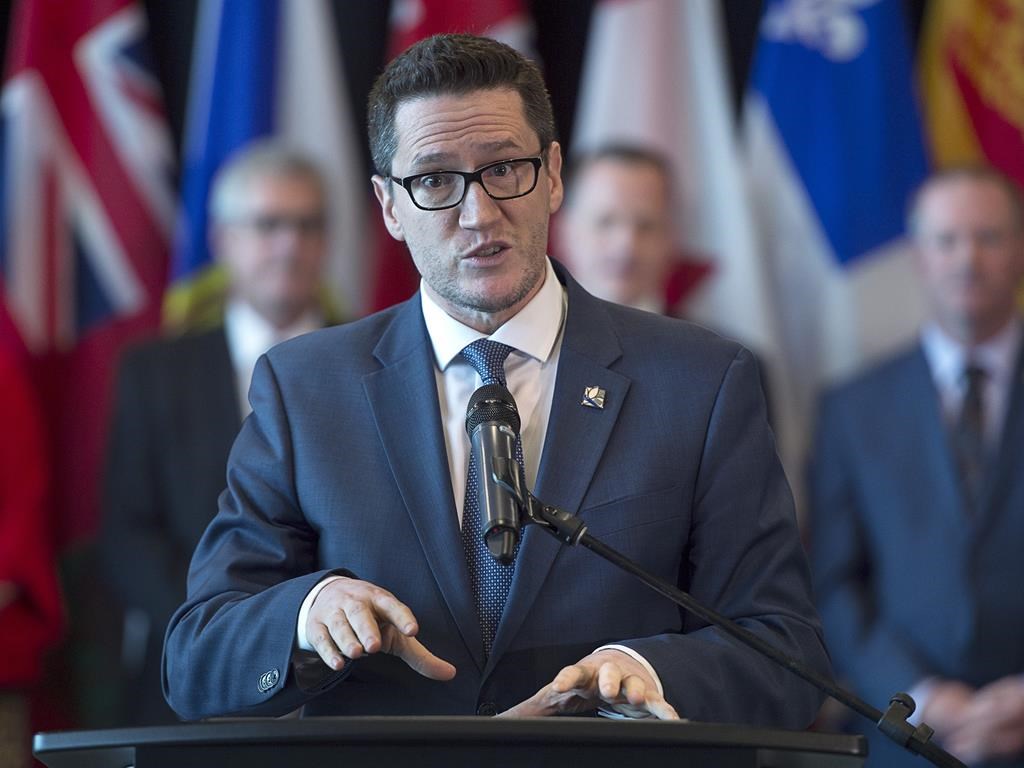When Ljiljana Latkovic was named to the council governing Quebec’s multi billion-dollar green fund in 2017, she thought she was going to use her science background to help choose projects aimed at fighting climate change.

Instead, Latkovic said she and the eight other council members were asked to sign off on proposals whose financing had already been approved by various government departments.
Moreover, she said, in the case of many projects they were approving, councillors had no idea how the projects were actually going to reduce emissions of the greenhouse gases, such as carbon dioxide, that trap heat in the atmosphere, causing global temperatures to rise.
WATCH: Heat warnings, watches issued for ON, QC, NB, NS

“My opinion is that the (environment) ministry didn’t care about the reductions,” Latkovic said in a recent interview.
Quebec’s green fund was created in 2006 as a way of collecting billions in revenues — in large part from the province’s version of a carbon tax — and redistributing the money towards initiatives to reduce greenhouse gas emissions.
But the so-called green fund has been widely criticized as a boondoggle.
Quebec’s new environment minister, Benoit Charette, is promising reform, but he has a colossal task ahead of him. The province’s past mistakes highlight the difficulties of managing a multi billion-dollar fund to which various government departments have access.
WATCH: McKenna says ‘one in 100-year floods’ happening frequently now

Instead of promoting projects with strict greenhouse gas emission targets, the fund became a buffet for the pet projects of various ministers, Charette said.
“Unfortunately, yes,” Charette said in an interview when asked whether the fund was being misused. “Certain departments helped themselves to the fund, so to speak, without a guarantee of results on investments. And the previous government let this phenomenon go on like that, which made things even more deplorable.”
Charette said despite the billions of dollars collected since 2006, the reduction in greenhouse gases “was very small across the projects that were financed.”
Quebec collects hundreds of millions of dollars every year from a carbon credit cap-and-trade system. Companies that emit high amounts of greenhouse gases are legally forced to purchase the right to release those gases into the atmosphere. Quebec sells emissions credits four times a year at auction.
- Enter at your own risk: New home security camera aims paintballs at intruders
- Boston Dynamics unveils ‘creepy’ new fully electric humanoid robot
- Nova Scotia scraps spring bear hunt idea, public ‘very divided’ on issue
- Ontario First Nation calls for chemical plant to be shut down amid ‘dangerously high’ benzene levels
Since its inception, almost $5.5 billion has been poured into the fund. And from the beginning, the program has been mismanaged, according to several reports from the province’s auditor general.
Various government departments used money in the fund to finance projects without calls for proposals or without specific criteria to evaluate greenhouse gas emissions reductions, the auditor general concluded.
In its 2019 report, the auditor general’s office said “nearly five years after the publication of our initial audit report on the green fund, we can only be disappointed with this situation.”
News reports over the years have indicated millions have been given to major oil companies and airlines for projects with dubious greenhouse gas reduction targets. Maple syrup producers received hundreds of thousands of dollars to replace evaporation equipment. Millions more dollars were given to taxi companies to help them adapt their vehicles for disabled people.
A spokesperson for the Liberals, the party that created the fund and managed it until they lost power last year, did not make anyone available to respond to the criticism.
Following harshly worded reports on the fund’s governance by the auditor general, then-premier Philippe Couillard in 2016 created the council to oversee the distribution of money. But Latkovic said that most of the time, her job consisted of rubber-stamping projects chosen by other departments.
The council chose about 10 to 15 per cent of the projects that received financing, she said, while the rest were pre-approved elsewhere in the government. “We wanted to know what we were signing for,” Latkovic said. “And some of the members wanted to resign because they didn’t know what was going on.”
Charette backed up Latkovic’s comments.
“It’s unfortunately true,” he said. “It’s really what was happening. We had a situation where the fund wasn’t being used to its potential. There was confusion regarding responsibilities. It’s what we want to correct.”
In June, Charette announced reforms he said would ensure the fund fulfills its mandate. First, the green fund is getting a new name. It will now be called the “electrification and climate change fund.”
WATCH: MarieChantal Chassé out as environment minister

Instead of the governing council on which Latkovic sits, Charette says the new fund will have a “committee of experts” who will oversee how money is distributed. Their reports will be public, he promised.
The fund will now be fully under the Environment Department, Charette said, and its minister will be accountable. “In the future if there is a management problem we won’t need multiple searches to find out who is responsible,” he said.
Finally, Charette said, the auditor general’s office will be tasked with producing an annual report on the fund’s governance. “We consider this public money so it’s important that it’s properly managed,” he said.
But Latkovic, who has a master’s degree in geological and earth sciences, said the fund has been a lost opportunity.
“It’s sad (the council) didn’t work as it should have,” Latkovic said. “Because it was a good thing, and I thought they were really going to care and do something about climate change.”



Comments